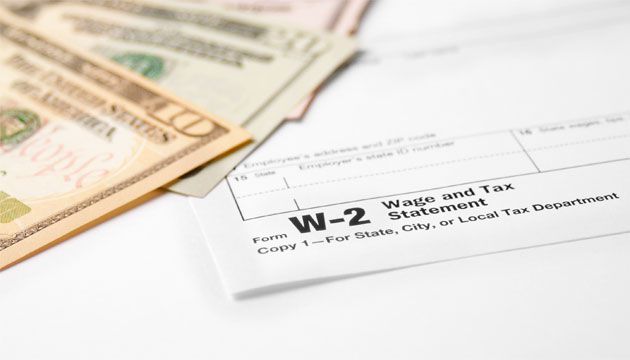
Tax season will be here before you know it and businesses everywhere want to handle their reporting quickly, efficiently and on time in order to avoid the penalties and fines associated with missed deadlines. In recent years, the Internal Revenue Service (IRS) has increased its penalties for misfiled or late tax forms. As a result, it’s more important than ever for leaders of small- to mid-sized businesses to stay on top of changes and be doubly vigilant in assembling and reviewing their reporting documents.
If filing is not done by the deadline, taxpayers will face failure-to-file penalties…
As simple as it may seem, one of the most important but least utilized steps to this review is simply double-checking all reporting documents and deadlines. It is vital to double check the information on tax forms for accuracy and be aware of year-end deadlines to prevent errors resulting in fines or other penalties. If filing is not done by the deadline, taxpayers will face failure-to-file penalties.
“Tax season doesn’t have to be a stressful time of the year that starts ulcers for small business leaders,” says Janice Krueger, a tax and reporting expert at Greatland, one of the country’s leading providers of W-2 and 1099 products for business. “A recent study revealed that 39 percent of filers are never certain that they are meeting all the rules and requirements when reporting annually. We want to help alleviate those concerns by informing taxpayers about filing requirements and deadlines, along with the ramifications of errors and/or late filings.”
Many 1099 and W-2 reporting penalties have doubled or even tripled over the past few years and it is increasingly essential that businesses file and complete all wage and income filings on time. Here is a list of filing penalties for W-2 and 1099 forms Greatland believes taxpayers should be aware of this season:
- The penalty for failing to file accurate information on returns is $100 per return.
- The maximum failure-to-file penalty is $1.5 million.
- If returns are filed within 30 days after the due date, the penalty is $30 per return.
- The maximum penalty for organizations that issue returns within 30 days is $250,000.
- The penalty for filing returns more than 30 days after the due date, but before Aug. 1, is $60 per return.
- The maximum penalty for organizations that issue returns more than 30 days past the due date, but before Aug. 1, is $500,000.
For small businesses, defined as organizations with annual gross receipts of $5 million or less for the three most recent tax years:
- The maximum failure-to-file penalty is $500,000.
- The maximum penalty for organizations that issue returns within 30 days after the due date is $75,000.
- The maximum penalty for organizations that issue returns more than 30 days past the due date, but before Aug. 1, is $200,000.
To make sure your business has all of the accurate information needed, you can find a full list of federal and state filing regulations to remember on Greatland’s W-2 and 1099 fact center website.








